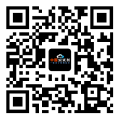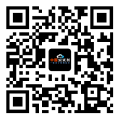详细说明
Purity
>90%, by SDS-PAGE with silver staining
Endotoxin Level
<0.10 EU per 1 μg of the protein by the LAL method.
Activity
Measured by its binding ability in a functional ELISA. When recombinant rat OX40 Ligand is coated at 75 ng/mL (100 μL/well), the concentration of Recombinant OX40 Fc Chimera that produces 50% optimal binding response is 1-5 ng/mL.
Source
Mouse myeloma cell line, NS0-derived
Rat OX40/TNFRSF4
(Val20-Pro210)
Accession # P15725IEGRMDP Mouse IgG2a
(Glu98-Lys330)N-terminus C-terminus Accession #
N-terminal Sequence
AnalysisVal20 & Val22
Structure / Form
Disulfide-linked homodimer
Predicted Molecular Mass
48 kDa (monomer)
SDS-PAGE
67-78 kDa reducing conditions
8584-OX |
| |
Formulation Lyophilized from a 0.2 μm filtered solution in PBS. | ||
Reconstitution Reconstitute at 100 μg/mL in PBS. | ||
Shipping The product is shipped at ambient temperature. Upon receipt, store it immediately at the temperature recommended below. | ||
Stability & Storage: Use a manual defrost freezer and avoid repeated freeze-thaw cycles.
|
Background: OX40/TNFRSF4
OX40 (CD134; TNFRSF4) is a T cell co-stimulatory molecule of the TNF receptor superfamily that coordinates with other co-stimulators (CD28, CD40, CD30, CD27 and 4-1BB) to manage the activation of the immune response (1-3). Rat OX40 is a 50 kDa type I transmembrane glycoprotein with a 20 amino acid (aa) signal sequence, a 191 aa extracellular domain (ECD) that contains a cysteine-rich region, a 25 aa transmembrane segment, and a 36 aa cytoplasmic domain (4). The ECD of rat OX40 shares 90% and 63% sequence identity with the ECD of mouse and human OX40, respectively. OX40 is up-regulated on CD4 + and CD8 + T cells upon engagement of the TCR by antigen presenting cells along with co-stimulation by CD40-CD40 Ligand and CD28-B7 (5, 6). OX40 Ligand is primarily expressed on antigen presenting cells (5). OX40 Ligand engagement of OX40 on activated CD4 + T cells results in increased T cell survival, proliferation, and cytokine production. It also inhibits the conversion of effector T cells into immunosuppressive regulatory T cells (Tregs) and can promote the maintenance of and recall response in memory T cells (3, 7-10). OX40 is constitutively expressed on Tregs and enhances the sensitivity of Tregs to IL-2, thus promoting Treg proliferation. OX40 has also been shown to decrease the cells’ immunosuppressive activity on effector T cells (11-14). OX40-OX40 Ligand signaling is involved in allergic airway inflammation, graft-versus-host disease and autoimmune disease (6, 15, 16). Mutations in OX40 and OX40 Ligand are associated with cardiovascular disease (17, 18).
References:
Hori, T. (2006) Int. J. Hematol. 83:17.
Latza, U. et al. (1994) Eur. J. Immunol. 24:677.
Salek-Ardakani, S. et al. (2003) J. Exp. Med. 198:315.
al-Shamkhani, A. et al. (1996) Eur. J. Immunol. 26:1695.
Moran, A.E. et al. (2013) Curr. Opin. Immunol. 25:230.
Gramaglia, I. et al. (1998) J. Immunol. 161:6510.
Xiao, X. et al. (2008) J. Immunol. 181:3193.
So, T. and M. Croft (2007) J. Immunol. 179:1427.
Mousavi, S.F. et al. (2008) J. Immunol. 181:5990.
Bansal-Pakala, P. et al. (2001) Nat. Med. 7:907.
Piconese, S. et al. (2010) Eur. J. Immunol. 40:2902.
Griseri, T. et al. (2010) J. Exp. Med. 207:699.
Xiao, X. et al. (2012) J. Immunol. 188:892.
Vu, M.D. et al. (2007) Blood 110:2501.
Damayanti, T. et al. (2010) Am. J. Respir. Crit. Care Med. 181:688.
Xiao, X. et al. (2012) Nat. Immunol. 13:981.
Nakano, M. et al. (2010) Cardiovasc. Res. 88:539.
Ishii, N. et al. (2010) Adv. Immunol. 105:63.
Entrez Gene IDs:
7293 (Human); 22163 (Mouse); 25572 (Rat); 102145978 (Cynomolgus Monkey)
Alternate Names:
ACT-135; ACT35 antigen; ACT35ATC35 antigen; CD134 antigen; CD134; Ly-70; OX40 cell surface antigen; OX40 homologue; OX40; OX40L receptor; OX40lymphoid activation antigene ACT35; TAX transcriptionally-activated glycoprotein 1 receptor; tax-transcriptionally activated glycoprotein 1 receptor; TNFRSF4; tumor necrosis factor receptor superfamily member 4; tumor necrosis factor receptor superfamily, member 4; Txgp1; TXGP1L; TXGP1LOX40 antigen










 粤公网安备44196802000105号
粤公网安备44196802000105号